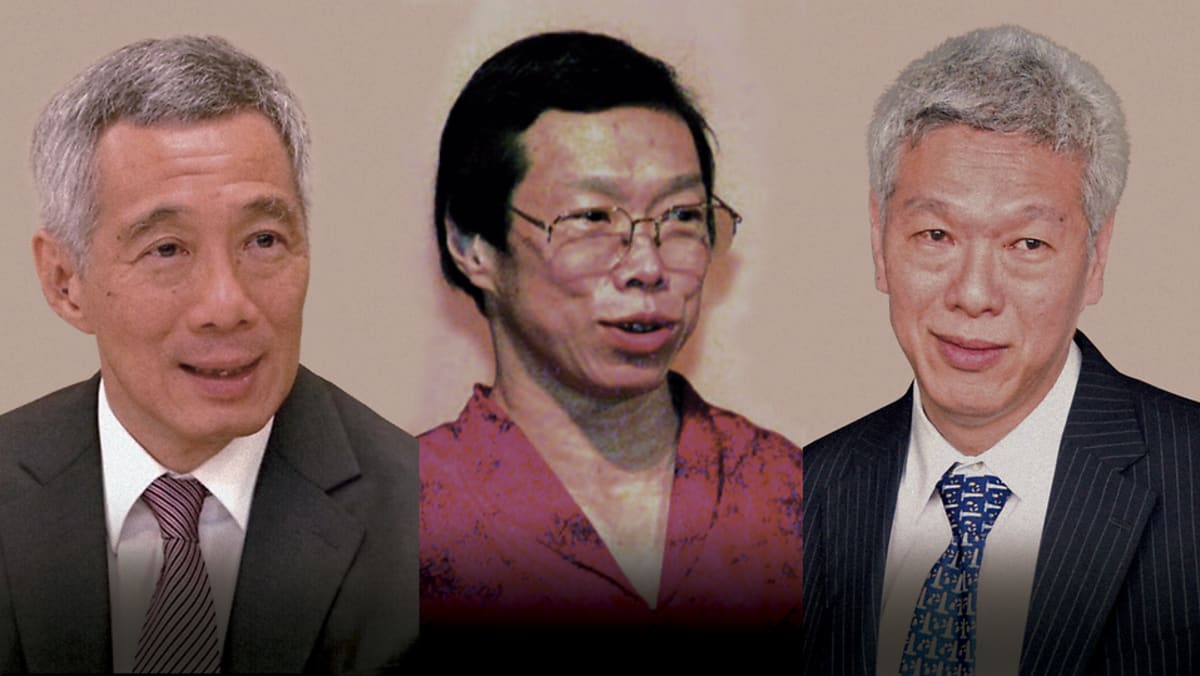HOW DID THE SINGAPORE GOVERNMENT RESPOND?
The saga made headlines in some of the world’s biggest newspapers, which led to Mr Lee Hsien Loong delivering a ministerial statement in parliament on Jul 3, 2017.
Urging all Members of Parliament to “examine the issues thoroughly and question me and my Cabinet colleagues vigorously”, he said he hoped a full airing of the issue would dispel doubts and strengthen confidence in the country’s institutions and system of government.
A ministerial committee on 38 Oxley Road was convened to consider the fate of the house. It is chaired by Senior Minister and Coordinating Minister for National Security Teo Chee Hean, and included then Minister for Culture, Community and Youth Grace Fu, Minister for Law K Shanmugam and then Minister for National Development Lawrence Wong. The latter is now prime minister.
In April 2018, the committee released a final report on the matter, with three proposals: Retaining the house in whole; retaining just the historic basement dining room; or allowing it to be demolished.
“In reaching our views on Mr Lee Kuan Yew’s wishes, we relied particularly on the objective evidence placed before us and the key concrete steps that Mr Lee Kuan Yew himself took in his lifetime to put his wishes into effect,” Mr Teo said previously.
“This included the demolition clause in Mr Lee Kuan Yew’s last will, his letter to Cabinet dated Dec 27, 2011, as well as the renovation/redevelopment plans for 38 Oxley Road, which he submitted to the URA in March 2012, and obtained approval for.”
The report did not make any recommendations and noted “there (was) no need to make a decision on the property” at the time, as Dr Lee was still living there.
“The various options in the report are meant to help a future government make an informed and considered decision when the need arises,” the committee said.
WHAT DO WILL DISPUTES HAVE TO DO WITH THE ISSUE?
In the final version of his will in 2013, Mr Lee Kuan Yew said he wanted the house to be demolished. If that were not possible, the property should be closed to everyone except family and descendants.
In his ministerial statement in 2017, Mr Lee Hsien Loong pointed out that the clause about the demolition had been removed in the fifth and sixth versions of the will, and only reinserted in the seventh and final will.
The first six wills were prepared by Mr Lee Kuan Yew’s lawyer, Madam Kwa Kim Li, between August 2011 and November 2012.
She was not involved in preparing the seventh and final will, executed on Dec 17, 2013 with the involvement of Mr Lee Hsien Yang and his wife Mrs Lee Suet Fern, a lawyer.
Mrs Lee Suet Fern was later found guilty in 2020 of grossly improper professional conduct in her handling of her father-in-law’s last will.
A disciplinary tribunal as well as the Court of Three Judges – the highest disciplinary body dealing with lawyers’ misconduct – found that Mr Lee Hsien Yang and Mrs Lee Suet Fern misled the late Mr Lee in the context of the execution of his last will, and that they had lied under oath during the proceedings.
Mr Lee Hsien Yang and Mrs Lee Suet Fern left Singapore in 2022 after deciding not to attend a scheduled police interview related to the matter. Earlier in October, Mr Lee Hsien Yang posted on Facebook saying he would not return to Singapore for his sister’s wake and funeral.
Mdm Kwa was also ordered to pay S$13,000 in penalties over misconduct in relation to the late Mr Lee’s wills in 2023.
She had to pay S$5,000 for failing to “scrupulously safeguard” the late Mr Lee’s confidentiality while handling his will, and S$8,000 for misleading Mr Lee Hsien Yang and Dr Lee in an email response to their queries.
This was after Mr Lee Hsien Yang and Dr Lee, as executors of their father’s estate, made four complaints against Mdm Kwa, of which two were eventually referred to a disciplinary tribunal.
The first claimed that Mdm Kwa breached privilege and duties of confidentiality by sending emails with records of communications with Mr Lee Kuan Yew to all three children, even though Mr Lee Hsien Loong was not an executor of the estate. The second alleged that she had given false and misleading information to the executors in her emails.

